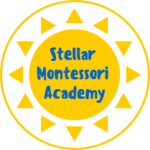Trends in Montessori Teacher Education
Changes in Montessori Teacher Education
Based on her research and observations in Scuola Ortrofrencia and Casa dei Bambini, Maria Montessori was able to put together a new method of teaching. She believed that ‘‘Education is a natural process carried out by the human individual and is acquired not by listening to words, but by experiences in the environment.” The first Montessori Course to teachers from around the world was started by Dr. Montessori in 1909. She travelled to all the continents spreading Montessori philosophy. In 1913 she came to the USA to introduce the concept of Montessori education. In 1915 she was invited to set up a classroom in San Francisco where children could be observed from glass wall. The news of the experiment was spread around the world which changed the course of Montessori education around the world. Dr Montessori conducted the first course in Montessori education. She along with her son Mario travelled around the world to spread Montessori philosophy and established many Montessori schools. In August 1929 Dr Montessori established an organization called association montessori internationale dedicated to Montessori education. AMI provides training today in the following areas: Montessori Education, Montessori for Dementia, Disability and Ageing, Montessori Administrators, Montessori Sports. AMS was established in 1960 and has a well-established Montessori teacher training program as well. Montessori education has changed a lot in the past 115 years. One of the most important ways is the new areas added to the teaching like the education for dementia, disability & aging, Montessori sports and administration programs which were not included in the original trainings when the Montessori training was originally started.
Many people believe that Montessori education does not emphasize physical development, which is not really true as we focus on life skills which includes physical activities. Dr Montessori valued sports a lot. She said “Tennis, football and the like do not have for their sole purpose the accurate moving of a ball, but they challenge us to acquire a new skill – something lacking before – and this feeling of enhancing our abilities is the real source of delight in the game.” We have a dedicated training course for Montessori sports now.
We now know that Montessori principles and practice support people who are living with compromised cognitive and physical capacities. Based on the interests of the person we can build a prepared environment to encourage them to continue being independent. One of the popular phases of Montessori educators to Help me do it myself. In an adult care setting we can say is it Help me continue do it myself.
STEAM based education has also evolved and Montessori educators have embraced the changes. The concepts of STEM/STEAM education like creativity, problem solving skills, innovation, teamwork, and leadership align with the principles of Montessori method. Both methods encourage creativity and innovation, promote hands on learning. They strive to build crucial skills like critical thinking, problem solving, creativity, collaboration, and teamwork. Like STEM/STEAM Montessori method teaches children to ask questions and create new ideas from what they learn. Though there are many similarities and overlaps between Montessori methods and STEM/STEAM, the main difference between the two concepts is that STEM learning is based on inquiry-based thinking. For children in primary classrooms this means that they are taught by ‘inquiry instruction’. STEM/STEAM works on the premise that children have a natural love to work with natural materials, they would like to try out various things and solve problems. This is an amazing age to build a lifelong foundation for scientific literacy. This approach largely focusses on solving real world programs with building and teaching children to think creatively. STEM/STEAM philosophy utilizes the primary years of a child’s life to build scientific knowledge and build a strong foundation to gain scientific literacy for the child later in life.
References:
Macià-Gual, A., & Domingo-Peñafiel, L. (2021). Demands in early childhood education: Montessori pedagogy, prepared environment, and teacher training. International Journal of Research in Education and Science (IJRES), 7(1), 144-162. https://doi.org/10.46328/ijres.1272
Montessori for Dementia, Ageing & Adult Care | Montessori Australia. (n.d.). https://montessori.org.au/montessori-ageing-dementia#:~:text=It%20has%20been%20150%20years,being%20and%20a%20significant%20aid
Association Montessori Internationale |. (n.d.). Association Montessori Internationale. https://montessori-ami.org/

